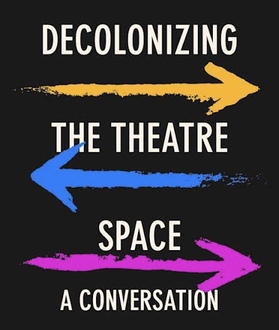- Featured
- Clean air
- Climate justice
- Consumer Rights
- Corporate Accountability
- Data access
- Early Childhood Development
- Economic fairness
- Education
- Electoral fairness
- Environmental justice
- Food justice
- Gender based violence
- Grants/social assistance
- Health
- Housing and infrastructure
- Industry interference
- Land Justice
- LGBTQIA+ rights
- Media/ information access
- Public transport
- Racism
- Reparations
- Safety
- Sanitation
- Service Delivery
- Sexual and Reproductive Rights
- Social justice
- Unemployment
- Womxn's rights/ gender equality
- Workers' rights
- More
-
Save our indigenous trees from mining!An organisation called Living Limpopo is working to challenge this mega project. They have launched an inquiry into the legal status of the North Site of the MMSEZ, and will continue to monitor the licensing of protected tree destruction at all sites of the SEZ and the planned new coal mines. They opposed the approval of the Water Use License, the Township Establishment and are participating in the Environmental Impact Assessment process and emissions licence applications for the ferrochrome smelter, coal washery and coking plants at the MMSEZ South Site. The judicial review case brought in December 2022 by Living Limpopo, CALS and others against the decision to grant environmental authorisation for site establishment at the South Site, is still pending. All Rise will be in an unopposed hearing in the Polokwane High Court on 6 December to finally determine issues relating to the record of decision Various farmers and indigenous communities are busy fighting this legislation. Our only duty as members of amandla.mobi is to give them the strength and support needed to advance this and protect tourism in Limpopo. Please add your name to the petition to protect our rich fauna and flora. We need to protect the ecology, biodiversity and heritage of areas in South Africa that are rich in these. References [1] Mining permits threaten Limpopo's ecosystems and agriculture. FoodforMzansi, 29 November 2024. https://www.foodformzansi.co.za/mining-permits-threaten-limpopos-ecosystems-and-agriculture [2] Thousands of Boabab trees are to be bulldozed in Limpopo by Barry Viljoen for The Citizen. 25 November 2024. https://www.citizen.co.za/network-news/lnn/article/thousands-of-baobab-trees-to-be-bulldozed-in-limpopo/ [3] Thirsty, energy-hungry steel 'monster' set to destroy thousands of Limpopo protected trees in industrial drive by Tony Carnie for the Daily Maverick. 14 November 2024. https://www.dailymaverick.co.za/article/2024-11-14-thirsty-energy-hungry-steel-monster-set-to-destroy-thousands-of-limpopo-protected-trees-in-industrial-drive2 of 100 SignaturesCreated by Masedi Maponya
-
Team Steenhuisen, do your homework on Sugary Drinks Tax!We know big sugar businesses have a history of misinformation to try to protect their profits [4]. Just like tobacco, sugary drinks are a major threat to our health and are contributing to the Non-Communicable Disease crises we are facing. We cannot allow greedy big businesses to bully government and capture politicians to protect their profits. Big business and its associates continue to use their enormous resources to delay, dilute, and delegitimise decisions that are in the public interest. They have proven time and time again that they are bullies and continuously hold the country hostage with threats of job losses and divesting. [1] https://www.da.org.za/2024/11/da-submits-tax-reform-proposals-to-bolster-growth-and-jobs [2] https://theconversation.com/new-research-shows-south-africas-levy-on-sugar-sweetened-drinks-is-having-an-impact-158320 [3] Researchers challenge cane growers’ claims that sugar tax killed jobs. By Tamar Kahn for Business Day. 11 June 2024. [4] SA’s proposed sugar tax: claims about calories & job losses checked: https://africacheck.org/fact-checks/reports/sas-proposed-sugar-tax-claims-about-calories-job-losses-checked41 of 100 Signatures
-
Prosecute teachers that hit and abuse learners in schoolsEducators are legally obligated to create a safe learning environment for learners. Physical, verbal and psychological abuse is not acceptable in schools. Corporal punishment was abolished in 1997 with the constitution stating that no one may administer corporal punishment at a school against a learner; a person who does this conscious of this provision is guilty of a criminal offence. Alarming statistics show that 57% of South African learners reported that they are experiencing violence at school, [4]. Personal testimony: "On the 18th of October 2024, my daughter, a 10-year-old grade four learner, was assaulted by a male educator who used his fists to punch her head multiple times. Pheasant Folly Primary educators instruct learners not to tell their parents about teacher-on-learner violence that occurs at school. The school harbours educators who are a danger to our children by justifying his behaviour as my daughter was “deserving” of the punches to the head, and he showed no remorse even after being in my presence in the principal’s office, where he admitted to the crime he committed against Cleo (pseudonym). My daughter has been a victim of bullying since last year, 2023, and I have personally escalated the case to the school. The case was recorded and nothing came of that case. Feeling like she needed to defend herself from her classmate (a boy) who wanted her snacks when their altercation escalated to the point where they exchanged insults. This scene was playing out while the learners were left unsupervised long enough for the two learners to have a verbal argument. When the educator finally showed up, one of the students alerted him that the two classmates were having an argument. The educator invited the 2 to the front of the class, where he then punched the boy 3 times with a closed fist on his head whilst he violently punched Cleo several times on her head as well. He told her that she deserved it more than the boy. After the assault, she went to sit at her desk and began to cry from the pain and humiliation that had just occurred in front of her 60-odd classmates. Instead of sending any of the other students who weren’t crying and in pain, the teacher sent Cleo (a crying child) to go and fetch a book from the teacher next door. Upon returning, Cleo put the book on the teacher’s table and went to sit down. He followed her to her desk and demanded to know why she didn’t put the book in his hand. He went on to call her disrespectful and said he’d remedy her disrespectful behaviour. He punched her again several times on the head until my daughter begged for forgiveness, but still, her begging fell on deaf ears as he ground his teeth together and punched a 10-year-old girl and a level 7 student several times on her head …AGAIN! At this point, the teacher told my daughter how she would not amount to anything and how she would start smoking weed and not complete school. He asked the class if Cleo would complete school, and they all said in unison, “No”! When the teacher was done demeaning, degrading and humiliating my daughter, he then said, “go and tell your mother to come to school in her stinking morning gown and see if she will do anything to me coz uzosirasela nje”, meaning I will only make noise for them" The psychological effects that abuse has on learners are irreparable, and after opening a case with SAPS and reporting my daughter's unfortunate plight to the school principal, SAPS did not send me an SMS with the case number, but for some reason, the case ended up in court when I did not know what was happening. The investigating officer had an unwelcome attitude and simply told me that the case would not be successful because I did not want to work with him, he claimed. He said my daughter’s statement was missing, and yet I took her personally to Eden Park Police Station, and the clerk took the statement from my daughter. These are some of the things that demoralize us, police negligence is pervasive. This kind of cruelty to children should be met with zero tolerance. The safety of the learners should be a priority because they are vulnerable and still in developmental stages. How educators treat learners and what they deposit into their brains will have a long-lasting effect and will determine what kind of adult the learner will grow into. Such teachers should be prosecuted to the full extent of the law as they are a danger to learners. Prosecution will also work as a deterrent for future abuse in schools. WHAT CAN BE DONE ? • Prosecute teachers who assault and abuse learners in schools to the full extent of the law. • Ensure swift and fair disciplinary action against abusive teachers. • Develop and implement safe and effective reporting mechanisms for learner abuse in schools. • Provide effective training on alternative discipline methods and implement them. • Teachers who are found to use violence on learners when they’ve been forewarned against it must be dismissed immediately! • Develop policies that promote safe and supportive learning environments • Teachers should be trained to exercise the degree of care they give to their own children. We, therefore, call upon all parents and guardians who have children in public schools to come together and join our campaign NOW before we lose more learner's lives as a result of physical, emotional and psychological abuse that teachers are imposing on our children. If enough of us come together, we can put pressure on the Department of Basic Education MEC, Matome Chiloane and the Director of National Prosecution Authority -Shamila Batohi, to prosecute teachers who assault learners in schools. Please sign the petition and share it widely to reach as many parents and guardians as possible. Help us get justice for our children! “If to correct a student is to humiliate them, then you don’t know how to teach” References [1] Department of Basic Education Handbook, second edition [2] Department of Basic Education Handbook, second edition [3] Gauteng Education Department probes allegations of bullying after Grade 6 boy's alleged suicide by Yoliswa Sobuwa for News24. 25 October 2023. https://www.news24.com/news24/southafrica/news/gauteng-education-dept-probes-allegations-of-bullying-after-grade-6-boys-alleged-suicide-20231025 [4] Global School-based Student Survey, 2019.44 of 100 SignaturesCreated by SONIA MZUNGA

-
Enforce Stricter Safety Measures for Long-Distance TransportationLong-distance transportation is more than just a service; it is a lifeline for millions of South Africans, especially during the festive season when families reunite across the country. However, the current state of certain operators, like APM, reflects a dangerous negligence that puts the lives of hard-working South Africans at risk. With buses that fail safety checks, a lack of accountability, and operations that disregard passenger dignity, the situation has become dire. By joining this campaign, you can be part of a movement to demand safer and more reliable transport for everyone. Transportation is not a luxury—it's a necessity. Many of the affected individuals are breadwinners who travel to rural areas and small towns to spend time with loved ones. These individuals should not have to compromise their safety due to financial constraints or limited travel options. Companies that exploit affordability to lure passengers without ensuring safety have no place in the industry. Together, we can push for stricter safety laws and enforcement, ensuring the government and transport authorities take immediate action to prevent tragic incidents and improve conditions. Public pressure is one of the most effective tools for change. Politicians and decision-makers are more likely to act when they see a unified voice standing against injustice. Holding companies accountable, such as APM, requires the collective power of individuals like you demanding transparency, safety, and dignity for all passengers. Your voice can encourage the government to put in place stricter regulations, unearth unethical practices, and establish sustainable, affordable transportation alternatives. A united campaign sends a clear message to the Department of Transport and the Business Ombudsman: South Africans will not settle for unsafe, exploitative, and poorly regulated transportation systems. By signing and sharing this petition, you help amplify the voices of those who depend on these services daily. Together, we can push for a transport system that values peoples’ lives, ensures roadworthiness, and prioritizes affordability for all South Africans. This is not just a campaign—this is a step toward societal fairness, safety, and dignity.9 of 100 SignaturesCreated by Akona Anati Zibonti
-
Fix broken public parks in Vosloorus immediately!The unavailability of proper and safe parks have led to children in the townships being locked inside their yards in order to safeguard them from external harm. This is a grave injustice as it not only leads to social isolation which negatively affects a child’s development, but it is a great contributor to health issues associated with lifestyle illnesses later in their lives. But this does not only speak to children as every member of our society gets affected by the lack of public playgrounds and training infrastructure. It is a fact that all four public parks and recreational facilities in the community of Ward 47 in Vosloorus are dilapidated without a single swing, slide, mary-go-round and exercising equipment being in a conducive state for public use. A few weeks ago over the spring holidays, my nephew had his trousers torn as a result of sliding down a rusty slide which almost caused an injury to his buttocks. Why has the municipality let such important infrastructure go unmaintained? Where are our children supposed to learn physical and social skills outside of the school playgrounds? After all, Outdoor play helps kids to build flexibility and creativity. They also have to learn to interact with other children, for example, at the swings or the slide, where they can learn about the importance of sharing and turn-taking [1]. In South Africa, diabetes is the most common cause of death in adult females, followed by cardiovascular disease and hypertension [2]. It is because of this reason that we cannot afford to have our townships' public recreational infrastructure neglected when the government should be encouraging physical activity and the culture of exercising, especially since the highest prevalence of obesity among South African adults, stratified by sex and race, was found to be in African women. We need to have our training equipment maintained in the same parks where our children play so that we can safely watch over them as we all stay active and keep in shape for our health and social benefits. Maintaining the equipment alone will not be enough if the environment itself is not physically inviting. This is why it is important to ensure that the grass stays cut and trees get pruned on a regular basis. People are social beings who need to participate in recreational activities in order to be stimulated. As a result, we need benches, picnic and braai areas, taps and garbage bins to be made available in our parks in as far as encouraging the culture of keeping our township litter free, especially in shared public spaces. There should also be employment of security guards to ensure that our parks stay secure and are alcohol free zones. This initiative will also create employment opportunities, thereby reducing the unemployment rate that is currently plaguing our country. Let us remind our local government that they have a responsibility over the wellness of our communities by adding your name to this petition. References [1] https://www.bbc.co.uk/tiny-happy-people/articles.Ryan [2] https://knowledgehub.health.gov.za/system/files/webinar/obesity-strategy.pdf26 of 100 SignaturesCreated by Nozipho Ntshingila

-
NATIONAL SHUTDOWN JANUARY, 15, 2025 BY SAECDTUAfter 28 Years, since the inception of Grade R through, South African School Act (SASA) of 1996. Stipulated the importance of the Early Childhood Development Programme in a new democratic dispensation. Due to ongoing implementation challenges and failures which resulted to constant reviews of the curriculum since 2000 - 2015, which resulted to the Phasing Out of multiple Grade R qualifications; such as NQF Level 4 & 5, Certificate in Educare, National Diploma in Educare, PGDE, Diploma in Grade R Qualification and other. All of the above is manipulated by the National Development Program (NDP2030), which is an International plan of action, irrelevant to the standards of South Africa and its economy, which seeks to improve the standard of education in a barbaric and inconsiderate manner and processes. Thousands of Grade R Teachers are literally unemployed in South Africa, at least 11900 Strugglers with Diploma in Grade R Qualifications are without jobs and most are embedded with trauma and depression as a result of education and economic inefficiency. SGB educators still earn from R2500 - 5000 for the past 10 years, without proper placement and with no benefits whatsoever. No maternity leave, which means the SGB teachers in question must appoint a teacher for a period of maternity leave and pays the teacher from her own stipend. We have teachers who laboured for 8 to 26 years, teaching our children without UIF and Pension fund contribution.1,685 of 2,000 SignaturesCreated by Melchisedec Shalom
-
Roman Cabanac must go!Add your name to put public pressure on John Steenhuisen to approach this matter with urgency, it is completely unacceptable that someone like Cabanac can continue to enjoy the perks of a R1,4 million salary when he has been instructed to leave. Additionally, there are far better qualifying candidates who could be given the role. The government of national unity is entrusted with so much power and responsibility to serve citizens. Beyond that, the last national election results have shown a decline in the democratic process. We have seen greater levels of political apathy from young people. This means that public officials have a greater role to play in restoring public trust and confidence that government does indeed work for everyone. Public officials should be committed to the values of good governance, transparency, and accountability and to being responsive to citizens' needs. The DA has outright spoken about cadre deployment, which has been a core undertaking of the ANC government and remains largely criticised and credited for the various issues within government. It is hugely surprising to see the DA taking a similar stance, theirs though largely being recruiting controversial podcasters/YouTubers with regressive views and a controversial history into key positions in government. Just recently, Renaldo Gouws, who has a history of racist remarks, has only just been fired [3] from the DA following an investigation into his long-documented racism, which the DA claims was not aware of. If the GNU is to work for all of us, such undertakings threaten our democracy and should be dealt with accordingly. Roman Cabanac has no place being the Chief of Staff within the Department of Agriculture; much like his fellow podbro Gouws, he must go. References [1] Agriculture minister Kohan Steenhuisen asks Roman Cabanac to step down by Karyn Maughan for News24. 12 September 2024. https://www.news24.com/news24/southafrica/news/agriculture-minister-john-steenhuisen-asks-roman-cabanac-to-step-down-as-chief-of-staff-20240912 [2] Agriculture Minister John Steenhuisen has appointed Roman Cabanac, a controversial podcaster and media activist to head his department. Cabanac is the new chief of staff. By Kamogelo Moichela for IOL. 27 August 2024. https://www.iol.co.za/news/politics/minister-john-steenhuisen-appoints-polarising-roman-cabanac-as-chief-of-staff-ed43ad03-dec2-4b45-bc1c-c47cf48b4c3b [3] Why did we waste three months?’ Renaldo Gouws questions DA’s disciplinary process after being fired for racism by Hope Ntanzi from the IOL. 23 September 2024. https://www.iol.co.za/news/politics/why-did-we-waste-three-months-renaldo-gouws-questions-das-disciplinary-process-after-being-fired-for-racism-83ff1130-6cb6-4e18-8f40-afaf081e13e58 of 100 SignaturesCreated by Thabisile Miya

-
Safeguard Jobseekers’ information from scammersIn the face of rising unemployment, many job seekers in our country turn to employment agencies to find opportunities aligned with their qualifications and experience. While these agencies play an essential role in connecting people with potential employers, they often lack adequate data security, exposing jobseekers to threats from scammers and dangerous criminals, including kidnappers and rapists.There has has been circulating allegations on social media about job portals leaking the job seekers informations to unauthorised third parties which in turn send the applicants instant messages inviting them to interviews.These messages often appear unprofessional, containing spelling mistakes, strange abbreviations, unknown phone numbers, and suspicious locations .There is however no clear indication as to whether the information is directly leaked or it is issues related to poor security measures of the job portals. Our youth, desperate for any employment opportunity, are frequently less cautious about verifying job offers due to their urgent need for work. When receiving interview invites, whether through email or SMS, their excitement often overshadows any concern about the legitimacy of these offers. Jobseekers trust that the platforms and portals they use are safe, making them especially vulnerable. South Africa faces severe issues related to human trafficking, violence, and unemployment. Weak security on employment platforms exacerbates these issues, failing to protect jobseekers and even putting them at risk. The escalating kidnapping rate reflects the crisis; in the 2022/2023 financial year, StatsSA reported 15,343 [1].These statistics do not however reflect the cases related to job seeking ,but a country with such sever kidnapping issues then more regulation enforcement is necessary .In 2021, a 35-year-old mother was invited for a supposed job interview at Tyger Valley Mall, where she was abducted and assaulted by her captors [2] .While in 2022, three jobseekers responding to fake job ads in Tzaneen, Limpopo, were kidnapped, robbed, and stripped [3].Such cases reveal the urgent need for protective measures, as our current system puts individuals at risk of life-altering trauma and harm. The Employment Services Act (ESA) aligns with POPIA by regulating the processing of jobseekers’ personal information. Under the ESA ,Personal data processing by Private Employment Agencies (PEAs) must protect jobseekers’ information and uphold their privacy.Information collected must be relevant to the jobseeker’s qualifications, experience, or other pertinent job-related details.A PEA may only share jobseekers’ information with prospective employers when relevant to job qualifications or as permitted by law.PEAs may disclose information to the Department of Labor or other state organisations when required by legislation [4]. This regulation underscore the responsibility of employment agencies to handle job seekers' information with the highest standards of confidentiality, limiting data use to protect against unauthorised access and misuse.Therefore the department of labour and employment should ensure that all the job agencies abide by this clause at all times in order to protect job seekers from exploitation and harm. No one expects to face kidnapping, assault, or any form of crime simply by attending a job interview. The use of employment agencies should facilitate jobseekers’ pursuit of work, not leave them vulnerable to exploitation by fraudsters or criminals. References [1] Concerning increase in kidnappings in South Africa , by Nompilo Kunene of The witness , 16 March 2024 [2] Gugulethu woman kidnapped and raped for four days at fake job interview ,By Mandilakhe Tshwete for IOL ,12 October 2024[3] Desperate job seekers kidnapped, robbed and stripped naked by scammers ,by Iavan Pijoos of News24 ,30 May 2022 [4] Where the results matter:Employment service Act ,by Ali Ncume of Maserumule Corporate Employment Law ,October 2015 Available at : www.masconsulting.co.za19 of 100 SignaturesCreated by Anathi Siyasi
-
Reprimand Selborne Primary School Principal for extorting parents.Parents who cannot afford to pay school fees must apply to the SGB for conditional, partial or full exemption from paying school fees. Application forms can be obtained from the SGB through the principal of a school. This is instituted by the Department of Education, and it is completely unacceptable to demand a fee for this process from parents who are already unemployed. To make matters worse, the principal withholds term reports from parents who owe school fees. Let's work together to put pressure on DBE to intervene and ensure that parents and children who cannot afford to pay school fees are granted exemption forms without having to pay. DBE also has to intervene and ensure the water issue at the school is sorted, let's preserve the dignity of the children. References [1] Information for parents and guardians: school fees and exemption. Department of Basic Education. 2025. https://www.education.gov.za/Informationfor/ParentsandGuardians/SchoolFees.aspx7 of 100 Signatures
-
Tell the G20 World Leaders to #TaxTheBillionaires!The climate crisis is not in the future; it is already here, hitting the most vulnerable: poor countries, forest peoples, river communities, slum dwellers, and rural populations who suffer from floods, droughts, and extreme temperatures. These people, who contributed the least to the problem, are paying the highest price. While the planet collapses, the richest continue to accumulate their fortunes, shielded in their bubbles. This proposal is based on the studies of Esther Duflo and Gabriel Zucman, economists whom the Brazilian government has taken as a reference to move forward in the G20 debate. It is absurd that this hasn’t advanced yet. A 2% wealth tax on 3,000 billionaires could fund much of the climate adaptation for over half of the world's population! The urgency is real, and the G20 will be the perfect stage for this change, with the world's most powerful leaders gathered. But we have little time because negotiations for the final meeting text began on 22 October 2024! That's why we need to be many voices. Together, let’s pressure the 20 global leaders and demand that the climate crisis be addressed in a fair and just way. What is the G20? The G20, also known as The Group Of Twenty, is the premier forum for international economic cooperation comprised of 19 countries ((Argentina, Australia, Brazil, Canada, China, France, Germany, India, Indonesia, Italy, Japan, Republic of Korea, Mexico, Russia, Saudi Arabia, South Africa, Türkiye, United Kingdom and United States) and two regional bodies: the European Union and the African Union (as of 2023). It plays an important role in shaping and strengthening global architecture and governance on all major international economic issues [1]. Currently, Brazil holds the G20 Presidency. Previously, India held the Presidency from 1 December 2022 to 30 November 2023. On 1 December 2024, South Africa will officially take over the G20 Presidency until November 2025, making it the last country in the Global South to hold the presidency. [1] https://www.g20.in/en/about-g20/about-g20.html#:~:text=The%20Group%20of%20Twenty%20.130 of 200 Signatures
-
Barricade Power Park Dam and the Abandoned Buildings for Safety in Orlando EastOn Sep 1, 2024 the search for a missing boy in Orlando East, Soweto ended after two days when his body was found in an old abandoned power station. Reports by Daily Sun and SABC News say the boy was playing with friends when he fell in [2]. The Municipality has a clear responsibility to minimise the dangers faced by its residents. Abandoned buildings should not be so easily accessible. The Municipality must lock these spaces and cover water bodies in the area. We have seen countless cases over the years of people’s lifeless bodies being pulled from streams, rivers, dams and other abandoned or open areas like irrigation canals. Many of these locations are either state-owned property, or the Municipality should make it their priority to safeguard residents where private land-owners refuse or remain negligent. South Africa has a great amount of public facilities that remain either inaccessible, or badly maintained where with enough effort, every South African can be taught how to swim. In the meantime, to keep people safe there needs to be another safety structure put in place. The Municipality can not continue to foster a culture that neglects the safety of its residents. They must ensure that every space in Power Park that poses a danger is immediately addressed. The cost of the Municipality of Johannesburg’s negligence is the loss of life. The site of this tragedy is an old power station located in a popular tourist area. Visitors enjoy the beauty of our country, but this privilege does not extend to local families. While wealthier children play freely, those from low-income homes live in constant worry about their safety. This luxury does not extend to the people whose homes appear in the back of these tourists' photos. Their peers from more affluent backgrounds get to run and play freely, children from low income homes and their families are always concerned about where, if not in their homes, people are safe. Families in these communities are under immense stress to provide for their children while facing challenges like dilapidated buildings and exposed wires. This situation limits children’s opportunities to experience the joys of growing up in South Africa, a country filled with potential. There are fewer and fewer spaces for children to have clean, safe fun, the youth are watching their friends fall to their deaths seeking entertainment. September usually marks the beginning of Springtime and fun in the sun for kids across South Africa. As the new season approaches, children should look forward to playing outside. It is unacceptable that parents cannot allow their kids to enjoy simple freedoms because of the municipality's negligence regarding safety measures, such as barricading and covering hazardous areas like the Power Park Dam. It is unacceptable for figures such as the spokesperson for EMS to place the sole responsibility of ensuring the safety of the city’s residents on their guardians and loved ones [1]. The Municipality has the duty to minimise the role they play in endangering the people by neglecting to close off dangerous buildings. It is also their responsibility to ensure that private property owners are held to the same standard. Lock up the death duplexes, cover the water. The lives of residents in Soweto are worth investing in. References 1. SABC News. Monique Lewis. 2 September 2024. EMS calls for parental supervision following drowning in Orlando https://www.sabcnews.com/sabcnews/ems-calls-for-parental-supervision-following-drowning-in-orlando/ 2. Daily Sun. Nhlanhla Khomola. 3 September 2024. Boy drowns in abandoned power station! https://www.snl24.com/dailysun/news/tragic-scene-as-soweto-boy-13-drowns-in-dam-20240903 3. The Citizen. Jarryd Westerdale. 18 October 2024. No swimming allowed: Warning after 13-year-old drowns in irrigation canal https://www.citizen.co.za/news/south-africa/drowning-13-irrigation-canal-warning-dws/ 4. Envirolutions Consulting. March 2020. BASIC ASSESSMENT PROCESS AND WATER USE LICENCE FOR THE PROPOSED REHABILITATION OF ORLANDO POWER STATION DAM, KLIPSPRUIT, CITY OF JOHANNESBURG, GAUTENG PROVINCE. DRAFT BASIC ASSESSMENT REPORT.25 of 100 SignaturesCreated by Tshegofatso Matsha
-
Joburg City Theatre Change of ManagementThe importance of showcasing genuine African productions cannot be overstated. These performances offer critical insights into our histories, struggles, and triumphs, fostering a sense of belonging and pride within our community. By prioritizing these works, Joburg Theatre could play a pivotal role in upholding its slogan and nurturing young talent, promoting cultural education, and attracting diverse audiences, ultimately benefiting the broader community economically and socially. • There a no shows who have made it out of the youth development stage into main stage arena through JCT support & funding • There no festivals on the main stage highlighting new African authentic voices or new festivals uplifting and promoting new playwrights/producers • No capacity for African works to cult main stage other than those directed by the artists director • Lack of opportunities for African professionals to participate in the main stage arena We call for immediate action to address these issues by advocating for a management team that is committed to inclusivity, transparency, and the promotion of authentic African productions. We urge the theatre's board to consider the long-term benefits of supporting local creators and engaging with our community in meaningful ways. We appreciate your attention to this urgent matter and hope to see proactive steps taken towards creating a more equitable and representative cultural space at Joburg Theatre.143 of 200 Signatures
.png)
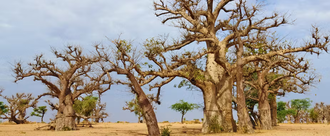
.png)
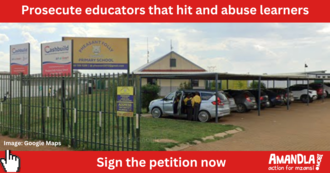.png)
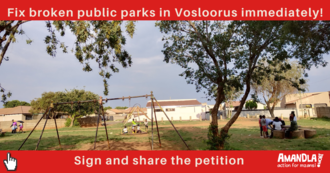.png)
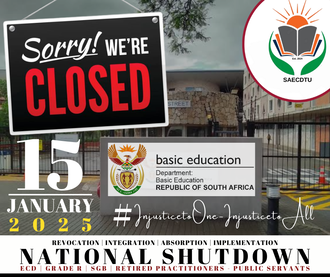
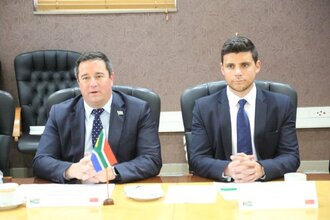



.png)
